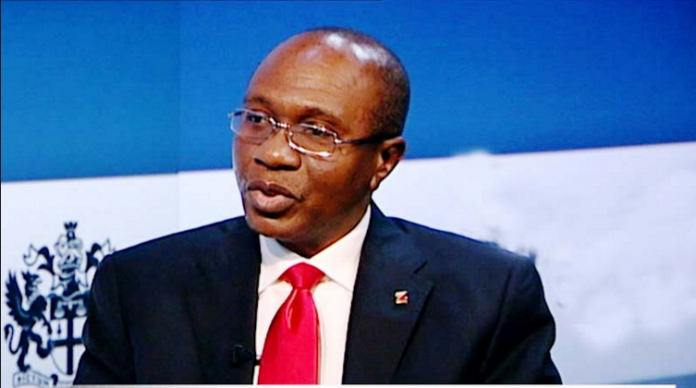The current bent towards stronger trade ties between Nigeria and China may bode well for Nigerian businesses if properly harnessed, writes Correspondent SAM NWOKORO
Necessity is the mother of invention. As it is in business, so it is in diplomacy. The worrisome value of Nigeria’s currency, the naira, which has spawned exchange rate crisis, has led the federal government to begin to tinker with alternative or at best complementary trade relations that is less dependent on the naira/dollar exchange mechanism.
Perhaps by the time the Muhammadu Buhari succeeds in consolidating this new emphasis on trade with China, in the remaining part of his tenure, he would have succeeded in tipping the balance of trade more to Nigeria’s favour. He would also have succeeded in entrenching Chinese economic and diplomatic hold in Nigeria like the West such as the Americas and Europe.
Chinese presence in African economies is already kicking up competition of geo-influence among America, Europe and Asia. Nigeria’s currency crises, slowing foreign exchange earnings and reserves and a host of other factors have combined to make China an attractive bulwark. Recent foreign trips made by President Buhari has only confirmed this and policy statements from his lieutenants only confirm popular perception that in the near future, trade relations with China would transcend private levels and incline more towards government to government between both.
While speaking on the sidelines of the annual International Monetary Fund (IMF)/World Bank Spring Meeting 2016 in Washington last week, Central Bank of Nigeria (CBN) Governor, Godwin Emefiele, disclosed that “Government is talking with China in order to be importing some of its own items from Nigeria” to the effect that Nigeria would become the Asian country’s trading hub in west Africa.
Emefiele also said: “China has appointed South Africa as its trading hub for the Renminbi (the official currency of the People’s Republic of China, and translates to “people’s money”) transaction in the Southern African region, has appointed Kenya as its trading hub for East and Central Africa, and Nigeria, the mandate that we have signed is to be the hub in West Africa.”
The CBN boss further disclosed that during his latest trip to China with the President, many investors, both Nigerians and Chinese, indicated strong willingness to set up plants in Nigeria rather than just bring in finished products into the country.
Reiterating that Nigeria has all China requires to do business profitably in Nigeria, Emefiele said: “What is the raw material for fertiliser? It is gas. We have it in large quantity. When you bring in the plant, you don’t need to import any raw material again. We are seeing the light at the end of the tunnel. We just want people to show understanding.”
Nigeria’s Balance of Trade 1981-2016
According to the National Bureau of Statistics (NBS)’s latest release on current trade levels, Nigeria reported a N26.4 million trade surplus in December of 2015, down from N298 million a year earlier. It is the lowest surplus since March 2010 as falling oil prices in the last months of 2015 dragged exports down.
Year-on-year, shipments dropped by 45 per cent to N533.8 million and imports decreased by 24.7 per cent to N507.4 million. In the last quarter of the year, sales sank by 29.7 per cent and imports declined by 22.4 per cent. In 2015, the country’s total trade stood at N16.4 million or 30.6 per cent less than that of 2014. Crude oil trade decreased by N4.94 million or 41.6 per cent.
What’s in it for China?
Nigeria reportedly remains one of the fastest growing economies in Africa, despite her infrastructural challenges. Most Asian countries, including South Korea, had at several times sought to have a significant stake in Nigeria’s oil and gas sector currently dominated by Euro-American multinationals. However, their efforts seem not to have yielded as much as they desired.
It is not only Chinese State Oil Company that had made stakes in Nigeria’s oil and gas sector, others too had. However, commodity import and export remain the driving force between China and Nigerian trade. According to latest energy forecast by London-based Lukoil Group, an energy market research body, series of factors will continue to make countries like Nigeria an attractive investment hub in oil and gas sector from now till 2025.
Lukoil reported: “Global demand for liquid hydrocarbon will continue to grow. The growth of population and the consumer class in Asia will support oil demand increase.
“Increase of oil production in North America won’t lead to a global oil price. Modern methods of evaluation of shale oil reserves allow considerable uncertainty, so there is caution in U.S. production estimates.”
The research group also pointed out that: “The European oil-refining industry is experiencing a systemic crisis. Such ongoing trends as the declining U.S. gasoline imports and the commissioning of new highly effective oil refineries in the Middle East and Asia will have a long-term negative effect on European producers.
“Gas consumption will grow faster than oil consumption. The greatest potential for the growth of gas consumption is in China.”
Other areas of improved trade between Nigeria and China include the mining industry.
According to the CBN governor, the Nigerian government aims to draw the Chinese small scale enterprises expertise, especially in the area of mining, fabrication and processing into Nigeria’s real sector to stem the current adverse trade balance between the two countries. Nigerian businessmen plying China and Asian regions have been discovered to have caused capital flight due to over-importation of finished goods without bringing the plants and industrial processes, even despite abundant raw materials in the country.
According to the international country-by-country market competitiveness rating body, Observatory of Economic Complexity, released in 2013, “Nigerians imported more than half the total value of 2013 imports from China. Her citizens both here and in China imported $11.6 billion worth of Chinese goods. They imported $5.89 billion goods from U.S., the Netherlands $3.35 billion, the Belgium Luxembourg $3.08 billion and India $2.69 billion.”
Experts say these factors make it imperative for Nigeria to bridge the trade gap urgently.













